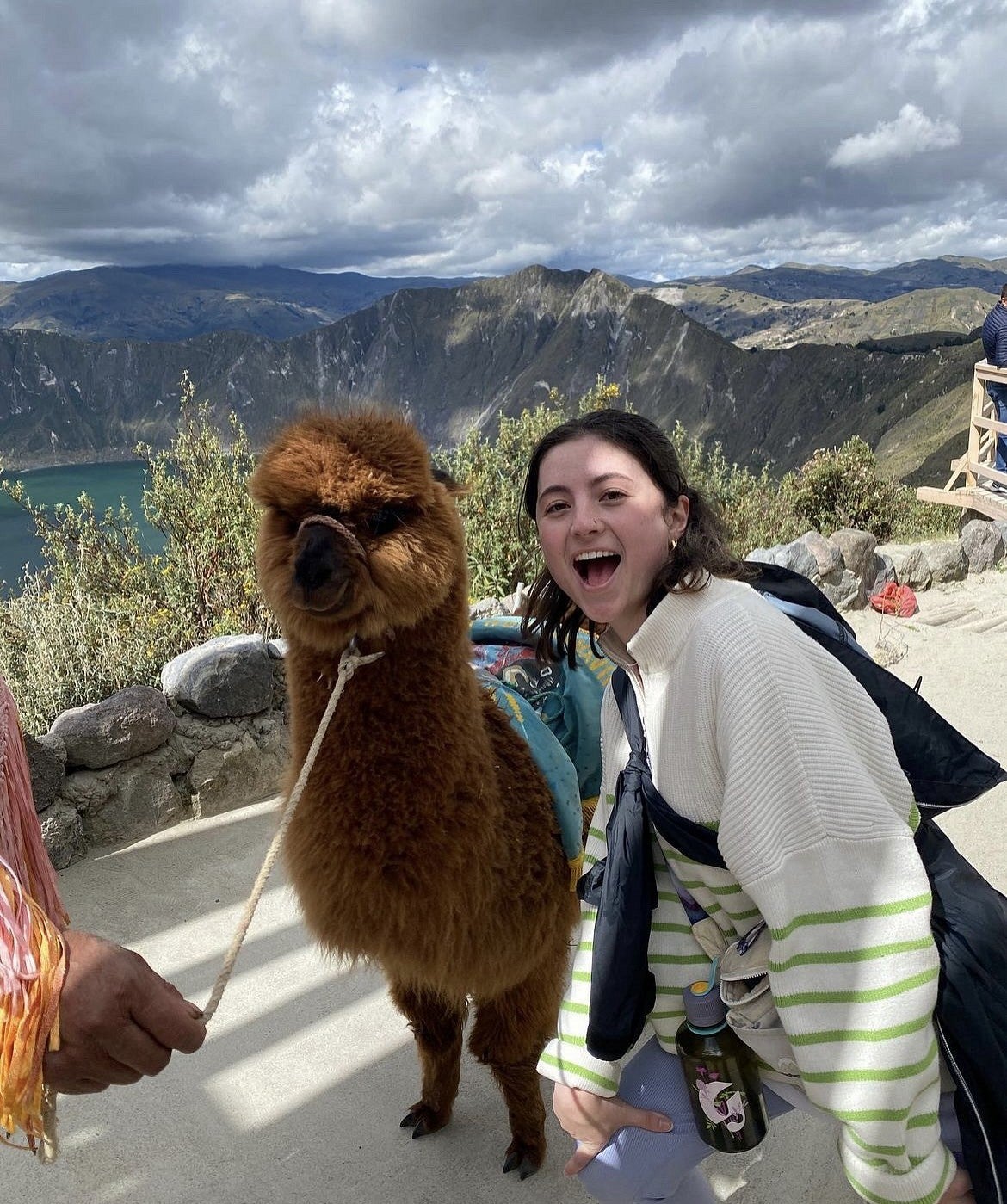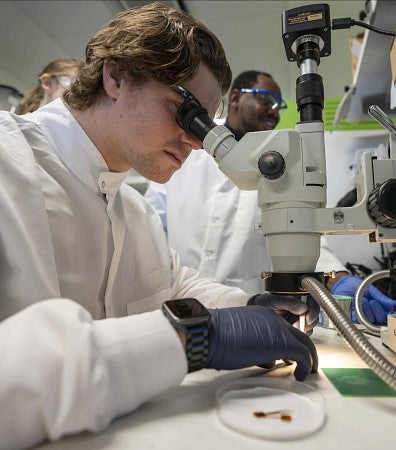Experiential learning emphasizes the knowledge and skills that are gained through “experiential” experiences beyond the traditional classroom format. Opportunities include active participation in innovative research, volunteering with community organization, career-relevant internships, student clubs that put theory into practice, and many other kinds of activities.
Undergraduate Learning Opportunities
Explore your interests and get practical experience that will help you decide on your academic and career direction. Undergraduates across the College of Arts and Sciences have the opportunity to take part in research teams or conduct individual research projects, as well as find opportunities for internships, study abroad programs, student groups and more.
Undergraduate Experiential Learning Experience

Lauren King Watt is a fourth-year global studies and multidisciplinary science double major with a double minor in Spanish and global health in the College of Arts and Sciences. After receiving the Hands-On Learning Scholarship, Watt fulfilled her dream of studying abroad in Quito, Ecuador.
“One of the biggest reasons I chose the global studies major is because I knew I wanted to study abroad from the moment I entered undergrad,” Watt said. She expressed her gratitude for this scholarship and acknowledged that it’s a “really great way to make studying abroad and doing global internships more affordable and more accessible for all students.”
When Watt was abroad in Ecuador, she spent her eight weeks there shadowing doctors in a range of different medical settings with a different medical rotation every week. During her time there, she was in an OBGYN setting, multiple emergency settings, pediatrics, primary care, and Indigenous medicine rotations. “I think one of the best ways to gain experience for future careers and to determine what you think is best for you is to gain hands-on experience in said career,” Watt said. She explained that her time having this hands-on experience shadowing doctors further reinforced her idea that she wants to be a physician assistant in the future.
“I am grateful for this scholarship and this opportunity, and I would encourage anyone who’s contemplating whether they should apply for a scholarship or not just to go ahead and apply.”
Learn more about Watt's experiential learning and the global studies major.

Max Tenenbaum is a senior in the College of Arts and Sciences, double majoring in Human Physiology and Neuroscience. In his time at the University of Oregon, he has gained experience working in the Deku Lab on campus after receiving the Hands-On Learning Scholarship.
“I applied for the scholarship because I had been previously working 20 to 30 hours a week and I wanted to put more of my time into my research,” Tenenbaum said. “[I knew] getting funding from the Hands-On Learning Scholarship would help ease some of those financial issues and allow me to put all of my time into my research.”
Tenenbaum explains that he found the application process for this scholarship to be very simple, consisting of only a few questions about his research goals, why he was applying, and how it would impact his life.
In the Deku Lab, the team works to engineer high channel counts and thin film microelectrode rays for chronic implants in the brain. “These could be used by clinicians and researchers to not only better understand neural circuits, but be able to modulate them to treat different diseases and neurological disorders, like blindness,” Tenenbaum said.
He reflects that the best part of receiving this scholarship has been the opportunity to be able to spend as much time as he wants in the lab. “I got so many hours in to just learn about the things that I care about and get more experience that I wouldn’t have gotten if I had to make that money other ways.”
Learn more about Max's experiential learning in human physiology and neuroscience.
Graduate Opportunities
Graduate students across the College of Arts and Sciences have the opportunity to take part in experiential opportunities such as participating in research teams or conducting individual research projects.

